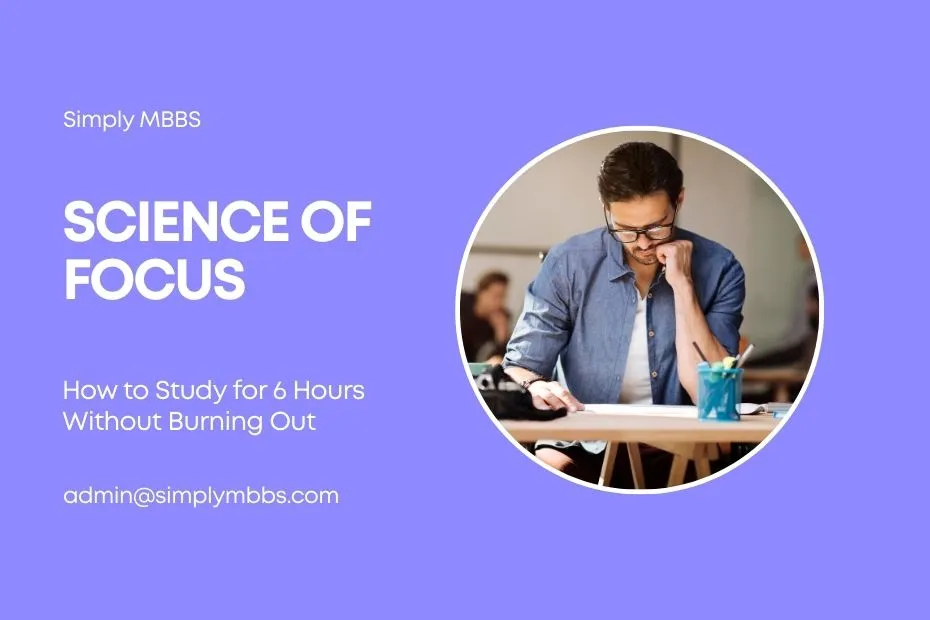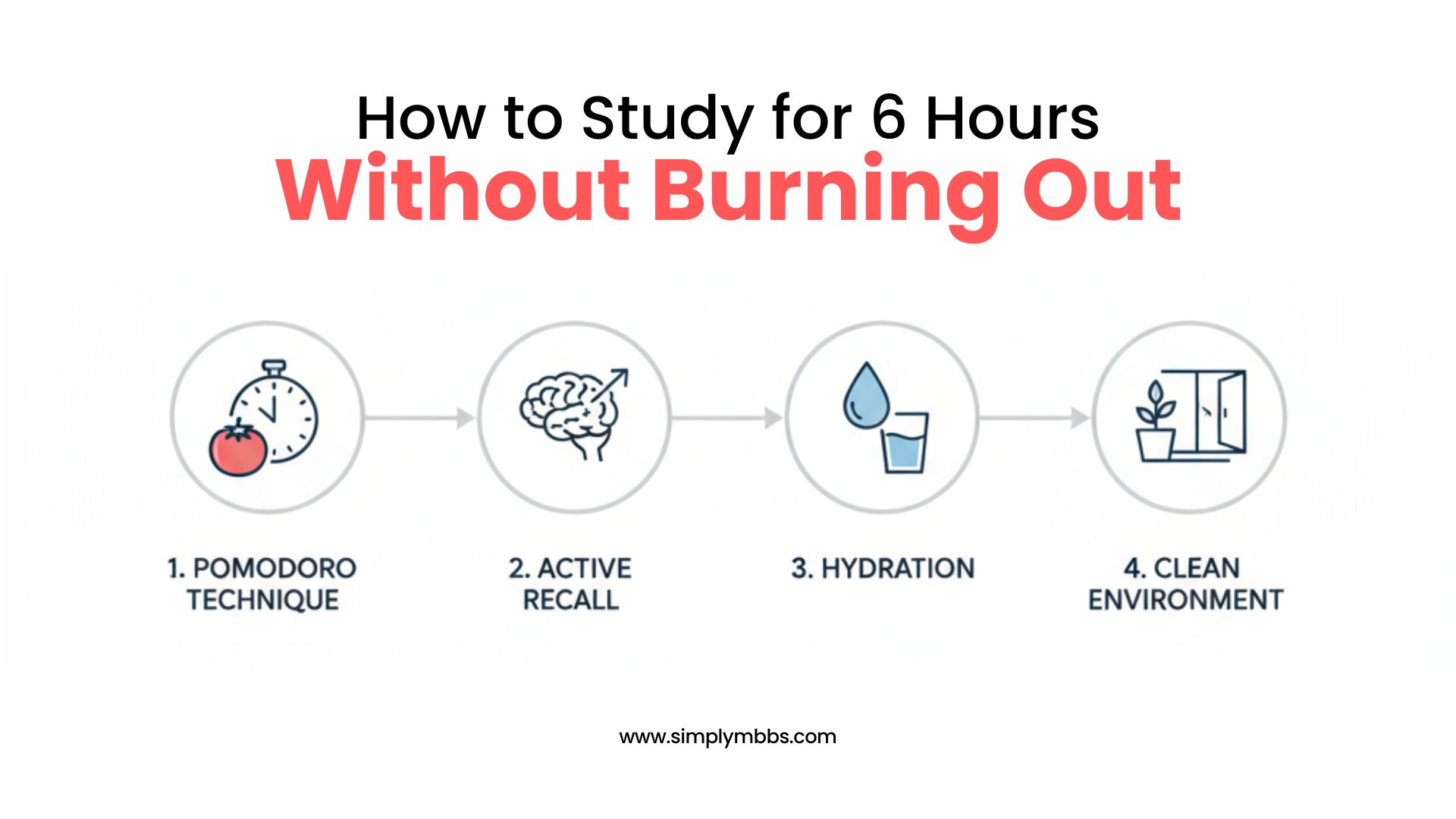What if you could study for 6 hours straight without feeling mentally exhausted? In the fast-paced academic world, long study sessions are common, but sustaining focus and avoiding burnout is a challenge. Understanding the science of focus and applying the right study techniques can help students and professionals maintain high productivity during extended study periods without draining energy.
In this guide, we’ll explore practical strategies, scientifically-backed methods, and actionable study hacks to help you study for longer hours without sacrificing your well-being. Whether you’re an MBBS student, a healthcare professional, or just someone striving to enhance focus, this article will equip you with the tools you need to optimize your study sessions effectively.
What is the Science of Focus?
Focus is more than just “concentration”; it’s the brain’s ability to direct attention to a task while blocking out distractions. It involves the prefrontal cortex, a part of the brain that plays a key role in attention control, decision-making, and impulse regulation.
Neurobiological perspective: When you focus, your brain releases dopamine, the neurotransmitter associated with motivation and reward. This provides the energy needed to maintain attention.
Cognitive load theory: Focus also hinges on cognitive load — the amount of information the brain can handle at any given time. Too much cognitive load can lead to mental fatigue.
Why Studying for 6 Hours Matters for Your Health
Studying for extended periods is often essential, especially for demanding courses like MBBS or for professionals staying updated. However, long hours can also lead to burnout if not managed properly.
The Importance of Breaks: Research indicates that studying in intervals with regular breaks (e.g., the Pomodoro Technique) increases retention and reduces cognitive overload.
Health risks of over-studying: Continuous study without adequate rest can contribute to stress, anxiety, and impaired sleep patterns, which are detrimental to your long-term well-being.
Whether you’re tackling challenging topics like shoulder joint anatomy or understanding complex conditions like stiff person syndrome, the Pomodoro Technique helps you retain information better than marathon study sessions.
How to Study for 6 Hours Without Burning Out
Step 1: Break it Down (Pomodoro Technique)
Use structured study intervals, like Pomodoro, where you study for 25 minutes and then take a 5-minute break. After every four sessions, take a longer break (15–30 minutes). This method ensures that your mind stays fresh while maximizing study time.
Step 2: Create the Right Environment
A cluttered or noisy space can break your focus. Make sure your study space is clean, well-lit, and free from distractions like social media or television.
Step 3: Use Active Recall and Spaced Repetition
Instead of passively reading notes, actively quiz yourself (active recall) and review material at spaced intervals (spaced repetition) for better retention.
Step 4: Stay Hydrated and Eat Right
Dehydration and hunger can significantly reduce focus. Drink water and eat light, brain-boosting snacks like nuts, fruits, and yogurt.
Read More : 7 Study Hacks That Saved Me During MBBS (Work for Any Exam)
Science of Focus Myths and Misconceptions
Myth 1: “Longer study hours always lead to better results.”
Reality: It’s about quality, not quantity. Studying efficiently and strategically is far more effective than over-studying.
Myth 2: “You must study in one long stretch to be productive.”
Reality: Studies show that breaks actually improve focus and retention. Overstudying leads to fatigue, not productivity.
Practical Tips for Daily Life
Prioritize Tasks: Focus on high-priority tasks first, and use techniques like Eisenhower Matrix to prioritize based on importance and urgency.
Practice Mindfulness: Take a few minutes to meditate before study sessions to clear your mind and enhance focus.
Limit Social Media Use: Turn off notifications or use apps like Forest to avoid distractions during study time.
Frequently Asked Questions (FAQs)
Q. What causes burnout during long study sessions?
A : Burnout occurs when you exceed your mental capacity without sufficient breaks, leading to exhaustion, irritability, and lack of motivation.
Q. How can I stay focused during long study sessions?
A : Use techniques like Pomodoro, active recall, and mindfulness. Ensure your study environment is conducive to focus.
Q. When should I take a break during study sessions?
A : Take a break after every 25–30 minutes of study. Short breaks (5–10 minutes) help you reset mentally.
When studying complex medical conditions or anatomical structures, burnout often occurs because students try to memorize everything at once — learn how we break down complicated topics into simple, memorable concepts to prevent cognitive overload.
Key Points Summary
Focus is a finite resource that can be managed through structured study techniques.
Breaks, hydration, and proper nutrition are essential for long study sessions.
Active recall and spaced repetition are scientifically proven to improve retention and focus.
Use mindfulness and time management techniques to avoid burnout.


